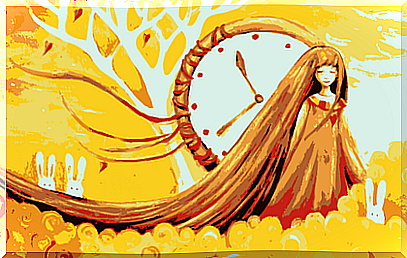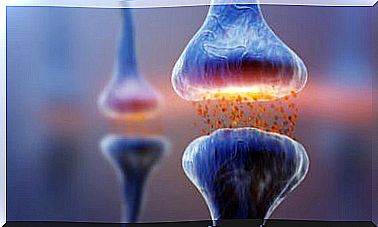The Power Of Patience To Effectively Manage Anxiety

The mind often goes faster than life. One of the keys to curbing that inclination is practicing the power of patience, where you can nurture a positive vision while cultivating the ability to wait. Give way to a habit where we allow ourselves to let go of anxiety, pressures and worries to let things happen at their own pace, in their time and in their moment.
Experts often disagree on whether impatience responds more to an acquired behavior pattern or to an innate trait that some people are born with. Be that as it may, there is one thing that is clear: our social context favors that state of dissatisfaction where we live anchored in immediacy. It is then that we experience the difficulty to tolerate waiting and that constant helplessness when we perceive that not everything can be under our control.
We also do not know if it is our impatience that brings anxiety or if it is our own anxiety that makes us less tolerant of waiting. However, what we do know is that both dimensions make up a perfect pairing, ideal to trigger a state of stress and over-activation in our brain more than patent, and all that this entails: insomnia, fatigue, concentration problems, discouragement and, of course, unhappiness.
An effective, as well as basic, strategy to regulate these states is to learn to develop the power of patience. It should be noted, yes, that it is not simple. It is not easy because when a brain has become used to these agitated thought patterns and approaches, there is always a certain resistance when it comes to proposing a calmer and, above all, optimistic vision. Let’s see how to get it.

The power of patience for a better quality of life
Constant impatience, resulting anxiety. This unique, and often devastating, pairing is not only a trigger for physical disorders such as muscle aches, headaches, tachycardia or digestive problems. Impatience is like that malware that is installed in our mind and that begins to activate the mechanism of cognitive distortions.
As soon as we get up, it begins to act. If the coffee does not come out of the coffee maker as quickly, the elevator takes a long time to arrive or the subway is a minute late, we assume that it is going to be a bad day. If that project we had in mind is not finished outlined today, frustration and despair eats away at us. The poison of haste distorts not only our thoughts: our spirits also blur and fill with gray.
As Albert Ellis, cognitive psychotherapist and promoter of rational-emotional therapy, said, if we do not control anxiety, it will be she who takes us down her lane and into a vehicle where life loses its meaning. Therefore, patience is a more than ideal mechanism to take / re-take control.
Self-regulation as the key to patience
The University of North Florida, in Jacksonville carried out an interesting study on the power of patience in January 2018. This work led by the doctor of psychology Dominik Güss, revealed that there are certain cultures where this dimension is more significant among the population due to to a very specific psychological function: self-regulation.
- Self-regulation is above all self-control or rather the ability by which we manage to successfully manage ourselves to better react to environmental pressures and events.
- The mechanisms for working on self-regulation involve learning to develop the following dimensions:
- Reflection.
- Emotional management.
- Self-control.
- Assertiveness.
- Social skills.
- The tolerance.

Train the four roots of patience
The power of patience in turn implies clarifying certain ideas about this dimension. It is common, for example, that we understand patience from the wrong perspective, where we can relate it to passivity, resignation or the mere ability to wait. So let’s see what its roots are, those that we should train from today:
- Patience is liberation. It is an emotionally liberating practice that teaches us to expect to observe and to know when to act.
- Patience is compassion. This dimension implies being respectful with ourselves and not mistreating ourselves for not being able to achieve certain things when we expected it. It means serving us, valuing ourselves and learning to be our best allies in life.
- Patience as an intuition towards movement and action. The patient person is not still, neither surrendered nor isolated from his reality, quite the opposite. The power of patience allows us to reserve energy for action, it helps us to awaken that intuition that knows how to look around to understand when it is better to be prudent and when it is convenient to take action.
- Confidence and optimism, the seeds of effective patience. Patience implies a certain confidence in inertia: things will arrive at the right time. It is useless that our mind goes faster than life if everything important happens here and now.
To conclude, let’s remember that patience is concentrated strength. It is the virtue of people who have learned to manage their emotions and thoughts to know that everything has its moment and that sometimes we strive to run when life is best appreciated in relaxed walks, in safe steps oriented in clear directions.









